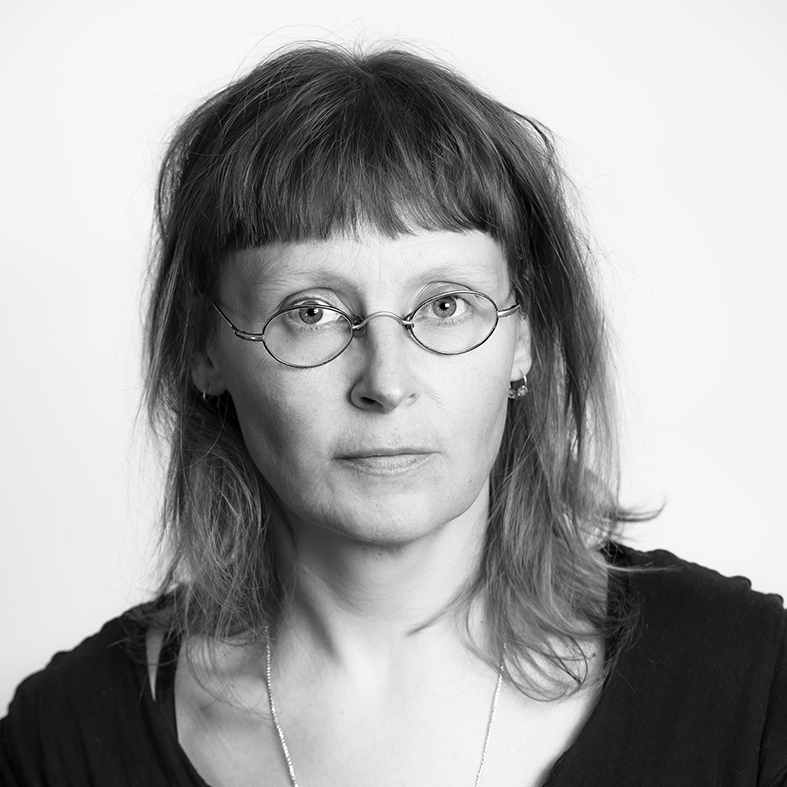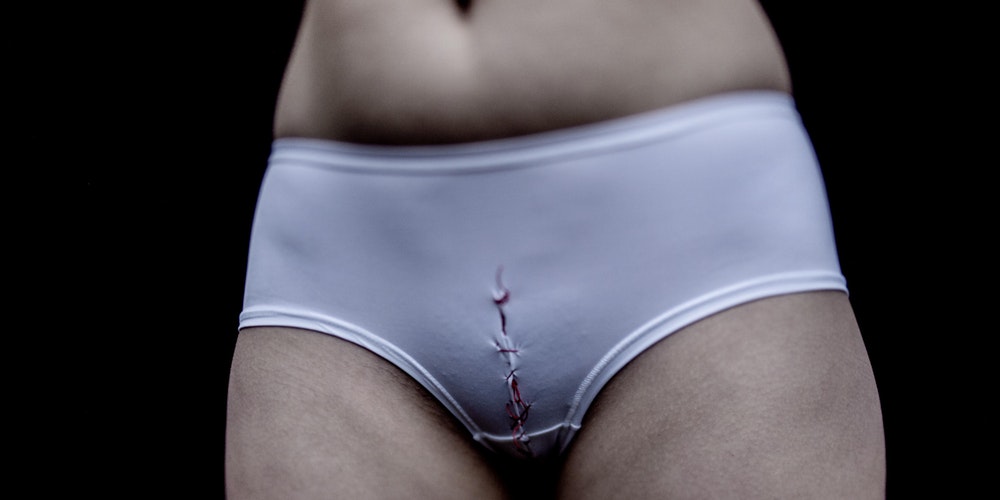Not Comfortable with How Female Genital Mutilation is Shown in Photos, A Swedish Photographer Applies a New Approach

Elisabeth Ubbe is an award-winning photojournalist who strives to highlight issues that are taboo to create conversation and room for change. Elisabeth’s work has been published in national and international publications and media. She has reported, among other things, on the drug war in Mexico, on gender equality work in South Africa, and from Turkey on the border to Syria, about girls and women sold as co-wives to Turkish men and about children who have been IS recruits. In 2014, she produced and released the exhibition and photo book The Invisible Breasts. Elisabeth is currently working on a book project on female genital mutilation (FGM) and has produced an exhibition with photographs and an audio story on the subject.
Elisabeth will be sharing her photography of and experience with survivors of FGM and child marriage, as well as breast feeding across cultures, at Vassar College on Tuesday, November 28 at 5:30 PM in the Villard Room.
AHA Foundation: When did you first hear about FGM and what was your reaction?
Elisabeth Ubbe: I was a student nurse doing my internship at the emergency ward, and was asked to insert a urine catheter. When I entered the room, the girl was already exposed and I didn’t understand what I saw. I don’t remember what I did, but my reaction was probably not at all professional. I had no knowledge and no preparation to handle this. When I, 25 years later, was deciding about my graduation project for the Nordic Photoschool, the memory popped up and I decided to work with FGM survivors and to make the vulva portraits.
AHA Foundation: Can you please describe your work and your approach to making each piece?
Elisabeth Ubbe: In all my photographic work, I feel that the relationship with the people – it’s almost always people – I photograph is more important than the photographic ingredients such as light and composition. For me, it’s very important that the person feels seen and confirmed by me. And the picture should reflect them and their energy more than confirm my skills as a photographer. I sometimes feel disturbed when photography becomes aesthetics more than content, especially when speaking about photojournalism.
AHA Foundation: What photograph that you’ve taken has been the most impactful?
Elisabeth Ubbe: I don’t know for sure, but The Invisible Breasts has been very important in creating discussions about women’s bodies and how we look upon them. It also works to raise awareness about the hate women who breastfeed in public sometimes encounter in Sweden. This is a trend we should be very aware of since it can be seen in a political context as a way to reduce women’s possibilities to take part and place in society.
Also the vulva portraits have been impactful, I think, and certainly were for the women in the pictures who have felt empowered. But also, what surprised me is that when I talk to people at the exhibitions who have dared to look at the pictures and listen to the audio story, instead of leaving feeling sorry for these women, many leave with the feeling of having met strong women trying to create change.
AHA Foundation: What do you hope to accomplish with your work on FGM and other women’s issues?
Elisabeth Ubbe: My idea is to talk with my pictures and use my platform to make space for voices and pictures seldom heard or seen. I hope that the directness of the vulva portraits will make the issue of FGM loud and clear while also empowering participants.
I am not very comfortable with how FGM is often photographed- with pictures of little girls undergoing FGM- and feel that those pictures are not helping the girl, nor helping to stop the harmful practice, but instead create a distance.

Photo by Elisabeth Ubbe \\ “Genitally Mutilated” \\ Excerpted from the larger collection “Genitally Mutilated”
AHA Foundation: What do you find to be the most challenging part of working to fight FGM?
Elisabeth Ubbe: I feel that the ignorance and prejudice about the issue prevents the needed change from coming more quickly. Since writing a book on FGM, I am surprised to see that very little has been done since my experience at the ER. I believe that in times of increasing migration, the impact of how we address the issue in our countries can be of great importance to ending the practice.
AHA Foundation: What do you wish other people knew about FGM?
Elisabeth Ubbe: That FGM has nothing to do with religion, and that harmful practices can develop in every culture. And that these girls and women are just like me and you, except in having been born where this practice is performed.
AHA Foundation: What would you like people to take away from your exhibits and books?
Elisabeth Ubbe: A feeling of having met someone on the picture that wants you to see and respect them just as they are.
AHA Foundation: Have you received reactions or feedback on FGM or child marriage from your exhibit audiences that surprised you?
Elisabeth Ubbe: I was expecting a lot of criticism but haven’t gotten it so far. One Kurdish woman burst into laughter when seeing the vulva portraits; she said it was a very strange experience to see pictures like this. She had, herself, undergone FGM as a child.
AHA Foundation: We are grateful you accepted the invitation of our campus program to present and discuss your work with FGM survivors with students at Vassar College on November 28. What do you hope to accomplish during your visit at Vassar?
Elisabeth Ubbe: I hope I can share some of my experiences and by that, raise awareness and start discussions that will proceed after my visit. It is a privilege for me to be able to present the stories of the girls and women I have met while working with FGM and I am very happy to be able to tell them at a Vassar College. And when I told them about my opportunity, they have been very proud that their stories will be heard in such a prominent place like Vassar; it means a lot to them that they are being seen and heard!
Also, I am very excited to meet students and be able to hear their opinions and ideas. I usually get very good ideas, critique, and inspiration from students and this is a very important thing for me in order to always try to develop my work.

